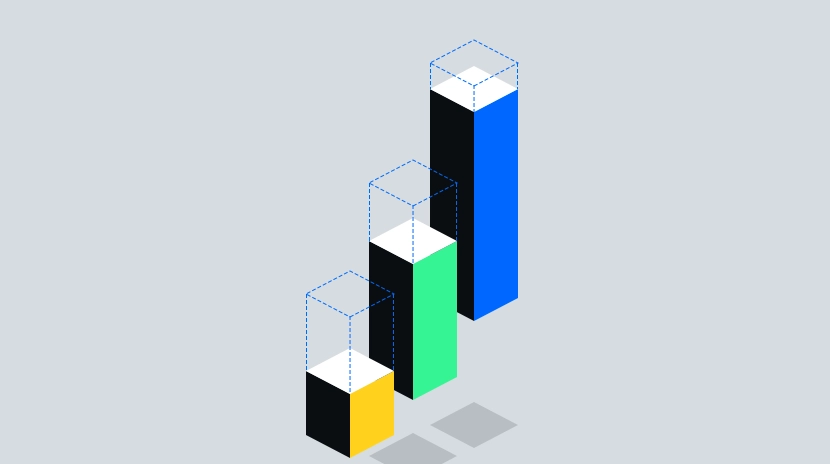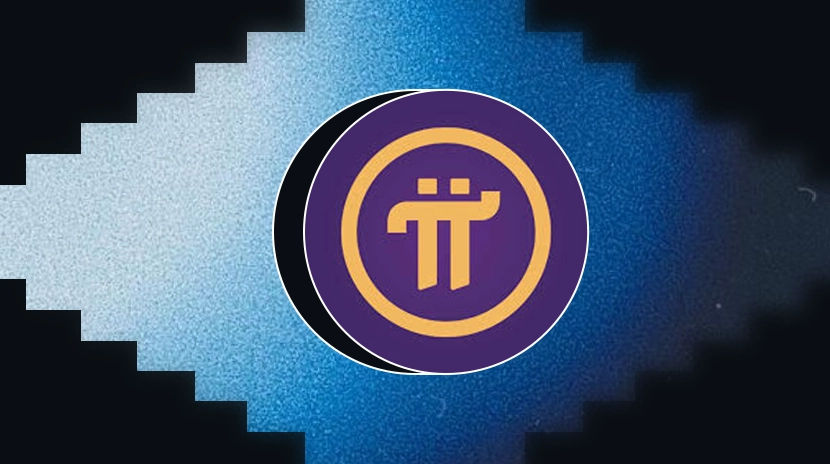определение аудитора

Кто такой аудитор?
Аудитор — независимый эксперт, который проверяет и оценивает надежность финансовых, операционных или технических систем.
В криптоиндустрии аудиторы анализируют смарт-контракты (самоисполняющиеся программы на блокчейне) и параметры безопасности платформ. Их цель — убедиться, что активы и права доступа управляются корректно, предоставляя письменные заключения для повышения прозрачности и доверия.
Почему важно понимать роль аудиторов?
Аудиторы играют ключевую роль в защите средств и поддержании деловой репутации.
В традиционных финансах аудит повышает достоверность корпоративной отчетности и снижает риск мошенничества. В криптоэкосистеме, где активы всегда находятся онлайн, а правила задает код, одна уязвимость может привести к мгновенной потере средств. Понимание функций аудитора помогает пользователям оценить, реализованы ли в проекте необходимые меры безопасности и соответствия требованиям.
Для пользователей важно знать, проходил ли проект независимый аудит и каков был его охват. Например, DeFi-протокол кредитования, проверенный на расчеты процентных ставок и логику ликвидации, обычно менее рискован; если проведено только базовое сканирование, существенные уязвимости могут остаться незамеченными.
Как работают аудиторы?
Аудит — это независимая проверка состояния системы по установленным методикам и процессам.
- Определение области аудита: В финансовых проверках это выбор отчетных периодов и объектов учета. В аудитах смарт-контрактов определяют версии кода, адреса развертывания и критические права (например, кто может обновлять контракты). Четкое определение области необходимо для достоверных выводов.
- Сбор доказательств: Финансовые аудиторы анализируют документы и проводят сверки. Аудиторы смарт-контрактов используют статический анализ (семантическая проверка без запуска кода), fuzz-тестирование (генерация случайных входных данных для выявления ошибок) и ручной просмотр кода, уделяя внимание правам доступа, потокам средств и граничным случаям.
- Проверка и ревью: В блокчейн-системах аудиторы могут воспроизводить сценарии на тестовой сети или проверять небольшие транзакции в основной сети для подтверждения поведения функций. В аудитах доказательства резервов на биржах сопоставляют балансы ончейн-адресов с учетными записями.
- Отчетность и коммуникация: Аудиторские отчеты включают уровни критичности проблем, шаги для воспроизведения, рекомендации по устранению и итоговые выводы. После устранения критических проблем аудиторы оформляют заключения о наличии остаточных рисков.
Основные задачи аудиторов в криптоиндустрии
Аудиторы проводят проверки кода, верификацию доказательства резервов и оценку безопасности.
- Аудит смарт-контрактов: Аудиторы выявляют риски, такие как атаки повторного входа (reentrancy — когда внешний вызов контракта нарушает логику), манипуляции оракулом (подделка ценовых данных) или избыточные права (администраторы могут неправомерно использовать средства). Например, контракт децентрализованной биржи, допускающий внешние вызовы при расчетах, должен реализовать защиту от повторного входа или изменить порядок исполнения.
- Доказательство резервов: Аудиторы разрабатывают и проверяют методы удостоверения наличия резервных активов относительно обязательств. Часто используется дерево Меркла — структура на основе хешей для пакетной проверки данных без раскрытия деталей. На платформах, таких как Gate, публикуются адреса резервов и корневые значения дерева Меркла. Пользователи могут проверить свои балансы по листовым узлам, а аудиторы — оценить методы выборки и соответствие ончейн-балансов.
- Оценка безопасности: Аудиторы проверяют внедрение мультиподписи, ограничения на прокси-обновления, надежность распределения ключей и возможность исполнения аварийных процедур.
Как снизить риски, выявленные аудиторами
Аудит — это непрерывный процесс, а не разовая процедура.
- Самооценка: Начните с чек-листа — фиксируйте потоки средств в контрактах, ключевые права доступа, внешние зависимости (например, источники цен), чтобы сократить информационный разрыв при аудите.
- Выбор типа аудита: Небольшие проекты могут ограничиться автоматическим сканированием и проверкой сообществом; при значительных средствах или сложной логике выбирайте опытные команды для глубокого аудита и закладывайте время на последующие проверки.
- Приоритет устранения проблем: В первую очередь исправляйте критические риски, связанные с активами и правами доступа, затем оптимизируйте производительность или комиссии. После внесения изменений отправьте код на повторный аудит для обновления заключения.
- Постоянный мониторинг после запуска: Используйте “timelock” (задержка вступления изменений в силу) и системы оповещений; подписывайтесь на журналы ключевых событий. При обнаружении аномалий применяйте аварийные сценарии для приостановки или переключения логики, чтобы минимизировать потери.
Для бирж и кастодианов регулярно публикуйте доказательства резервов и предоставляйте пользователям возможность самостоятельно проверять включение их аккаунтов. Привлекайте сторонних аудиторов для оценки методики и проверки выборки — это укрепляет доверие.
Актуальные тенденции и статистика по аудиторам
В этом году акцент в аудитах смещается на ончейн-проверяемость и регулярный пересмотр.
Отчеты по безопасности за последний год показывают, что потери от ончейн-атак остаются на уровне нескольких миллиардов долларов — обычно $2–3 млрд по данным исследований за третий квартал 2025 года (цифры зависят от источника). Это стимулирует проведение нескольких раундов аудита для высокорискованных контрактов в сочетании с программами bug bounty.
Для средних DeFi-проектов аудит смарт-контрактов обычно занимает 1–3 недели и стоит $10 000–$200 000; крупные протоколы или кроссчейн-системы требуют более шести недель и бюджета от нескольких сотен тысяч до $1 млн и выше (по итогам анализа расходов за последние полгода). Вопросы бюджета и сроков стали ключевыми ограничениями при запуске продуктов.
В 2025 году биржи, использующие доказательство резервов, делают упор на прозрачность методик. Все больше платформ публикуют ончейн-адреса и корни дерева Меркла вместе с деталями выборки и инструкциями для пользователей. Gate предлагает инструменты для самостоятельной проверки, чтобы каждый мог убедиться в наличии своего баланса — это повышает внешнюю верифицируемость.
В части инструментов растет охват статического анализа и fuzz-тестирования; аудиторы все чаще сочетают автоматические результаты с ручной проверкой. В свежих отчетах часто отмечают ошибки в настройках прав доступа и зависимостях от внешних цен — командам рекомендуется снижать сложность и избегать единой точки отказа на этапе проектирования.
Чем аудиторы отличаются от специалистов по комплаенсу?
Обе категории повышают доверие к проекту, но работают с разными аспектами.
Аудиторы оценивают “фактическую точность и безопасность системы”, оформляя отчеты на основе доказательств; специалисты по комплаенсу занимаются “соответствием нормативным требованиям и политике”, консультируя по вопросам законодательства. Аудиторы специализируются на проверке и тестировании, а комплаенс — на интерпретации и внедрении норм.
В криптопроектах аудиторы смарт-контрактов анализируют код и права доступа; специалисты по комплаенсу проверяют выпуск токенов на предмет признаков ценных бумаг и оценивают процессы KYC (идентификация пользователей) на соответствие местным стандартам. Совместная работа повышает устойчивость проекта.
Связанные термины
- Смарт-контракт: Самоисполняемый код на блокчейне, обеспечивающий транзакции без участия третьих лиц.
- Gas Fees: Комиссии за выполнение транзакций или операций с контрактами в блокчейне, стимулирующие работу валидаторов сети.
- Staking: Механизм, при котором пользователи блокируют криптоактивы для участия в валидации сети, получая вознаграждение и обеспечивая безопасность блокчейна.
- Виртуальная машина: Исполняющая среда для кода смарт-контрактов в блокчейне, гарантирующая безопасное изолированное выполнение.
- Аудит: Независимая оценка безопасности кода смарт-контракта для выявления потенциальных уязвимостей и рисков.
FAQ
Чем обязанности аудитора отличаются от бухгалтера?
Аудиторы проверяют и подтверждают подлинность финансовых отчетов; бухгалтеры составляют и ведут финансовые данные. Проще говоря, бухгалтеры “ведут учет”, а аудиторы “проверяют учет”. Аудиторы независимо оценивают достоверность информации, а бухгалтеры фиксируют ежедневные операции по стандартам. Для каждой роли требуются разные навыки и ответственность.
Почему Big 4 важны для аудита криптопроектов?
Big 4 (Deloitte, PwC, EY, KPMG) — крупнейшие аудиторские компании мира с высочайшей репутацией и стандартами. Их участие в аудитах криптопроектов существенно повышает доверие к проекту. Инвесторы больше доверяют проектам с сертификатами Big 4 благодаря строгим процедурам проверки и признанным стандартам.
Чем отличается сертифицированный бухгалтер от обычного?
Сертифицированный бухгалтер — специалист с международной квалификацией, прошедший сложные экзамены и практическое обучение. В сравнении с обычными бухгалтерами он обладает более высоким статусом и правом работы по всему миру. Его заключения и подписи имеют большую юридическую силу в крипто- и традиционных финансах.
Как проектам реагировать на проблемы, выявленные аудиторами?
Аудиторы оформляют отчеты с градацией проблем по степени риска (например, высокий, средний, рекомендации). Проекты должны составлять планы исправления в зависимости от серьезности — например, устранять ошибки в смарт-контрактах, усиливать внутренний контроль или раскрывать дополнительную информацию. После исправления некоторые проекты проходят повторный аудит для получения “безусловного заключения” о чистом статусе.
Как проверить подлинность аудиторского отчета по крипто?
Сначала убедитесь, что аудиторская компания имеет международную аккредитацию (например, входит в Big 4 или является признанным аудитором). Затем проверьте, что в отчете указаны область проверки, выявленные проблемы и выводы. После этого убедитесь в подлинности подписей через официальный сайт компании. Остерегайтесь “поддельных отчетов” — настоящие документы содержат фирменный бланк, подпись аудитора и дату.
Источники и дополнительная информация
- https://www.merriam-webster.com/dictionary/auditor
- https://www.investopedia.com/terms/a/auditor.asp
- https://www.law.cornell.edu/wex/auditor
- https://www.thecorporategovernanceinstitute.com/insights/lexicon/what-is-an-auditor/?srsltid=AfmBOor5riy49CUHbMxJH8N1bOsLH7WPBK6XPi4lpwxjNOb-hxQmv5p4
- https://en.wikipedia.org/wiki/Auditor
- https://dictionary.cambridge.org/us/dictionary/english/auditor
- https://corporatefinanceinstitute.com/resources/management/auditor/
- https://www.dictionary.com/browse/auditor
Похожие статьи

Топ-10 торговых инструментов в крипто

Правда о токене Pi: Может ли это быть следующим Биткойном?
